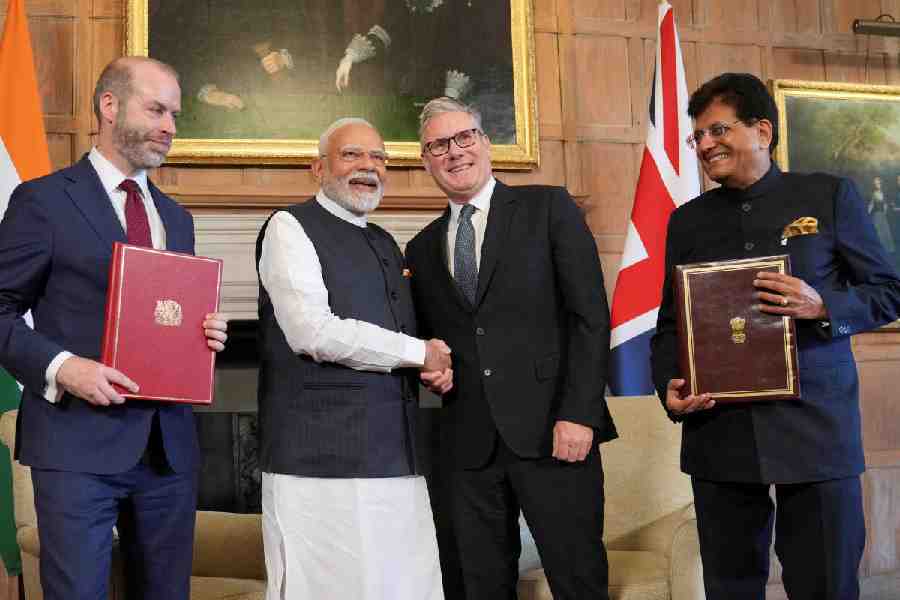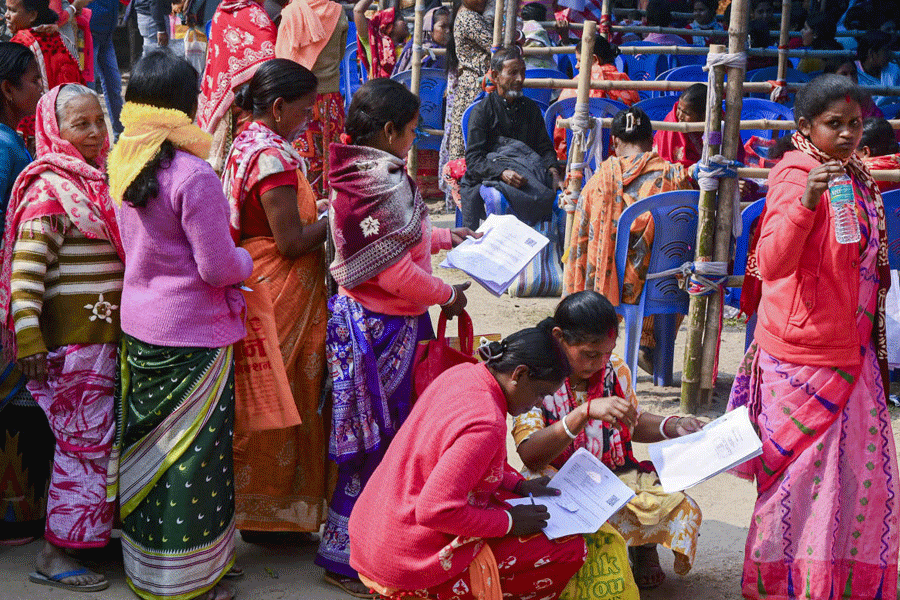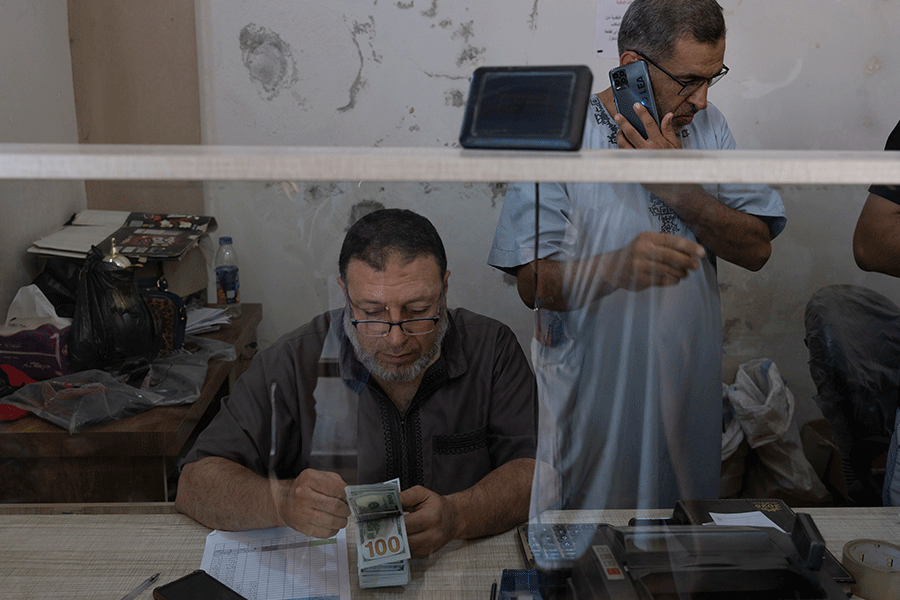 Saturday, 24 January 2026
Saturday, 24 January 2026
 Saturday, 24 January 2026
Saturday, 24 January 2026
India and the UK on Thursday inked a free trade agreement (FTA) that will cut tariffs on British whisky, cars and an array of items, besides boosting bilateral trade by around $ 34 billion annually.
Commerce minister Piyush Goyal and his British counterpart Jonathan Reynold signed the deal in the presence of Prime Minister Narendra Modi and his British counterpart Keir Starmer.

PM Modi called the trade pact as a milestone moment in bilateral relations.
“Today marks a historic day in our relations. I am delighted that after the hard work of several years, today our two nations have signed the Comprehensive Economic and Trade Agreement,” Modi said. “New opportunities will be created in the British market for India's agricultural produce and processed food industry.”
The FTA is expected to benefit 99 per cent Indian exports from tariff and will make it easier for British firms to export whisky, cars and other products to India, besides boosting the trade basket, according to Indian officials.
The UK said Indian consumers will benefit from improved access to the best British products -- from soft drinks and cosmetics to cars and medical devices -- as average tariffs will drop from 15 per cent to 3 per cent after the FTA kicks in.
Exports such as shrimp, tuna, fishmeal, and feeds, which currently attract duties ranging from 4.2 per cent to 8.5 per cent in the UK, will now be able to access the British market duty-free.
Other imported goods, such as medical devices and aerospace parts, will also be cheaper in India now.
"Significant share of medical devices like surgical instruments, diagnostic equipments, ECG machines, X-Ray systems will not attract any duty," a commerce ministry official told PTI.
Exporting labour-intensive products such as footwear and clothing will now be easier, and the cost of whiskey and cars imported from the UK will reduce.
The deal will also provide duty-free access to several domestic sectors such as leather, electrical machinery and chemicals in the British market, said Goyal.
Goyal said the agreement will ensure duty-free exports of nearly 95 per cent of agricultural products, while fisherfolk gain from zero duty on 99 per cent of marine exports, boosting their incomes.
India's talent in IT, services, and education will gain from easier access to the UK's high-value markets and will make it more affordable for Indians to live in the UK. Indian firms and freelancers will have access to 36 service sectors in the UK with no ‘Economic Needs Test'.
Indian professionals can work in 35 UK sectors for 24 months, even without an office in the country. They will be exempt from UK social security payments for three years under this deal.
The government further said it has taken steps to safeguard the sensitive agricultural sector from British imports. There will be no tariff concessions on dairy products, apples, oats, and edible oils to ensure domestic farmers are not affected.
Indian farm products such as fruits, vegetables, cereals; turmeric, pepper and cardamom, and processed products like mango pulp, pickles, and pulses, will get duty-free access under the new pact.
Starmer said the deal would deliver economic advantages for both nations.
“This is the biggest and economically most significant trade deal the UK has made since leaving EU,” the UK PM said. “It is a deal that will bring huge benefits to both of our countries, boosting wages, raising living standards and putting more money in the pockets of working people.”
“It is good for jobs, it is good for business, cutting tariffs and making trade cheaper, quicker and easier,” he added.
"The FTA will be a win-win for both countries. It will boost economic activity and create many more jobs and opportunities for entrepreneurship in both countries," Vedanta Group chairman Anil Agarwal said. "This will help both countries to increase the trade by at least USD 20 billion." Agarwal said he has closely seen the economic engagement between India and the UK grow substantially over the last two decades.







